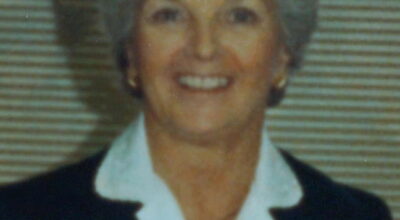Our View: Be responsible news gatherer and sharer
Published 9:43 am Friday, January 13, 2017
Woody Harrelson has a lot of nice things to say about Winchester after he ran into some car trouble here. It turns out the actor had some mechanical issues just as he was passing the city limits. Some friendly Clark Countians came to the rescue, though, offering him a ride to town, some lunch at Woody’s Sports Bar (how fitting) and even found him a mechanic to fix his rental car.
“I’m telling you, these people in Winchester are the real deal. I’m going to move there after I retire,” Harrelson said in a radio interview — or so a story that circulated Facebook Wednesday night would have us believe.
Despite the seemingly obvious falsehoods in the story — Why would he need a mechanic to fix a rental car? The good samaritans had no idea who he was? — it spread like wildfire through the social mediasphere with its share of “heart eyes” emojis, tags of Woody’s Sports Bar employees and nice comments about how great Winchesterites are.
Granted, had Woody Harrelson really experience mechanical problems in Winchester, we truly believe some of our finest would have come to his rescue. But, the fact stories like these can spread so quickly and fool so many raises some major red flags about how we gather and absorb news these days.
According to Politifact, a fact-checking site created by the Tampa Bay Times, similar stories were disseminated about other parts of small town American getting the exact visit from other Hollywood stars — Harrison Ford in Mandan, North Dakota; Tom Hanks in Kennewick, Washington; and Adam Sandler in Pflugerville, Texas.
The fake stories are actually part of a chain of websites that earn advertising revenue for each click on the stories. The sites even have names that sound legitimate — the Harrelson story came from “16 WMPO.”
While none of the stories specifically say the article is fake, each site has a disclaimer (if you know where to look) that says the articles “are simply works of satire meant for entertainment purposes” and shouldn’t be considered true.
Sadly, this is one of the less detrimental versions of fake news that has spread through social media in the last year.
According to a Buzzfeed News report, during the last three months of the presidential campaign, the 20 top fake news stories on Facebook generated more engagement — shares, likes and comments — than the 20 top stories from real news websites.
The digital world — social media platforms and the Internet — has become a blessing and a curse. We have the chance to communicate and connect on a level most other generations could have only dreamed of. With that ability comes a certain responsibility, though.
Users need to make sure the information they are absorbing and then disseminating is accurate. Otherwise, stories like “Hillary Clinton is a pedophile and runs a child sex trafficking ring,” (an actual fake story that was shared and sparked a nearly dangerous visit to a D.C. restaurant from a rifle-wielding vigilante) continue to contribute to the widespread distrust of media and politics.
Be a responsible news-gatherer and do your research. If it seems too good (or bad) to be true, it probably is.





